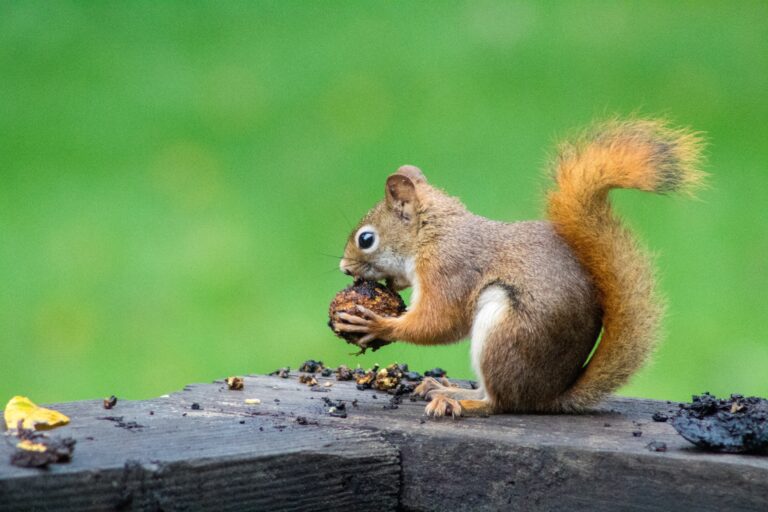
Squirrels can be a major challenge in the garden, because they often view a freshly planted bed of bulbs as an all-you-can-eat buffet. Tulips are a favorite of these bushy-tailed rodents, along with crocuses and lilies. If there are squirrels in your area, it’s best to take precautions to protect your bulbs.
Your tulip and crocus bulbs are most vulnerable right after you finish planting them in the fall. Squirrels are trying to get as many calories as they can before winter. The loose soil of a recently finished bed is not only easier to dig in, but also signals that there might be something good to eat.
After planting and fertilizing with compost, you can protect your bed by placing some kind of permeable barrier over the top. Many gardeners use hardware cloth, chicken wire, or sections of old chain link fencing to prevent squirrels and other rodents from digging. Use stakes to stop critters from pushing it out of the way.
The option preferred by Master Gardener Sally Ferguson is expandable window screens, which are easy to close up and store when you don’t need them. If the planting area is particularly windy, you might want to place rocks or bricks at the edges of the screens to hold them in place.
Place your screen or other barrier on top of the planted tulips right away, and leave it in place until the ground is hard and frozen. Rain and sun can still permeate the barrier. Once the ground is too solid for creatures to easily dig into, then remove the screen and add a layer of mulch to help insulate the rest of your bulbs until spring.
After planting, it’s also a good idea to clean up anything that might attract squirrels, like damaged bulbs you’ve decided not to plant or any of the papery skins that may have fallen off the bulbs in transport.
Approaches We Don’t Recommend
You may come across many other suggestions that claim to keep squirrels at bay. Here’s our take on some of the most common alternative deterrents.
Cayenne Pepper
Some sources recommend spreading cayenne pepper over the bed of bulbs or dipping the bulb itself in the spice. The idea is that squirrels and other critters don’t like the taste of capsaicin, the chemical that gives peppers their heat. This approach could potentially work if spread on the surface, but it is unproven and we have not tested it ourselves. The bottom line is that we don’t recommend it, because it’s labor intensive and expensive. An additional downside is that rain will wash this away.
Deterrent Spray
There are a number of different sprays on the market that claim to repel squirrels and other rodents from outdoor spaces. They likely contain mint, but in some cases also smell unpleasant to humans. These products are more likely to work than pepper alone, but we have not tested them and they get very mixed reviews online. Sprays have the same issue as cayenne – rain will wash it away, despite manufacturer claims.
Sharp Gravel
This approach is unlikely to work. It would need to be a bed of razors, and even then it is unlikely to be a true deterrent.
Squirrel Resistant Bulb Varieties
If the squirrels in your area are particularly aggressive, or you prefer not to use a barrier, another option is to plant bulbs that squirrels don’t like to eat. Daffodils and alliums are beautiful spring bloomers that are distasteful to both squirrels and deer. Here are some other squirrel-resistant bulb varieties to consider:


